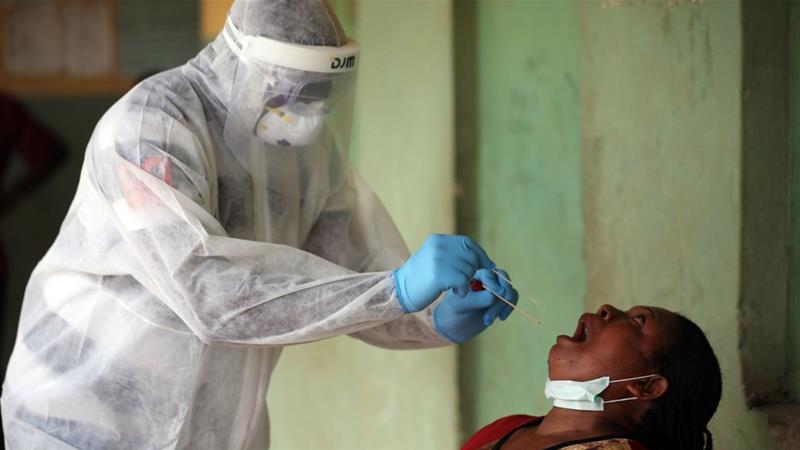What is Home Based Isolation? This is when a patient confirmed to have COVID-19 is mandated to restrict activities and movements outside their home unless when seeking medical care. During the entire period of home-based isolation, the patient should not go to public places like workplaces, school, market, churches, meetings etc. The patient should not also use public transport like taxis, buses and shared boda-boda rides.
What is Home Based Care? This is when a COVID-19 patient is provided the required care directly in the home by a care giver who may be a family member, a friend or a member of the local community while cooperating with the advice and support from the trained health workers and strictly following the home based isolation standards and other COVID-19 prevention & control measures.
Why home-based Isolation and Care? Ever since the epidemic started, the Ministry of Health (MOH) issued a policy to admit all COVID-19 patients in health care facilities. In Uganda, the epidemic has expanded, and the health care system is constrained by the fast-growing number of positive cases that get admitted to health care facilities. To ease the constraint posed on the health facilities, the Uganda Ministry of Health (MOH) has provided an option of advising some categories of COVID 19 patients to undergo isolation and care at their homes. For example, asymptomatic patients or those with mild disease or those who are not at risk of developing severe disease can undergo home-based isolation and care not to overwhelm the health facilities.
Importance of home-based isolation and care standards/guidance Suppose a COVID 19 patient is assessed and advised to undergo isolation at home, he or she has the responsibility to stay at home and away from other people to prevent the spread of the virus to others who might include family members, friends, and the wider community.
More precautions should be taken to stay away from the vulnerable individuals who might be in the home. The vulnerable include the elderly (above 60 years) or people with impaired immunity due to other illnesses like diabetes, HIV/AIDS, cancer, and other chronic illnesses (like high blood pressure, chronic kidney disease, and chronic lung diseases).
Strict adherence to the home isolation guidance will significantly reduce the overall amount of infection any household member could pass on to others in the community.
Who is eligible for Home-Based Care? This will be determined by a designated Health Care Worker (HCW) or a Health Assistant after the assessment. The criteria include:
1. Newly confirmed or Suspect COVID-19 patient described as below:
- Has no symptoms or has mild illness
- Patient with no known risk of developing complications or progressing to severe COVID-19 disease.
- Patient who lives in a home that meets the criteria for home-based isolation
- Patient who demonstrates understanding of the rationale of why people need to stay home when sick until cleared for discharge/de-isolation.
2.Any patient discharged from treatment center for home care.
Patient’s responsibilities under Home Based Isolation and Care
- Must stay in a separate room and limit movements in the shared areas like bathrooms, toilet, kitchen etc.
- Must always practice infection prevention and control while at home.
- Accept to be monitored by the health care workers for at least 14 consecutive days from the date test was done while in isolation.
- Must agree to admission in case of symptom worsening that warrants hospital admission.
- Stay confined at home until fit for discharge or de-isolation according to the guidelines
- Only be visited by the care giver until is discharged or de-isolated.
- Always wear recommended cloth mask while in the shared places in the home.
- Have readily available disposable paper tissues/clean cloth for use whenever sneezing or coughing if cannot tolerate the mask
- Immediately discard paper tissue safely after use
- Practice social distancing of 2 meters while in shared areas if situation arises
- Regularly wash hands with clean water and soap before and after eating or using the toilet.
- Dry hands after washing using disposable paper towels/clean cloth/ towel which shall be washed, dried and ironed.
